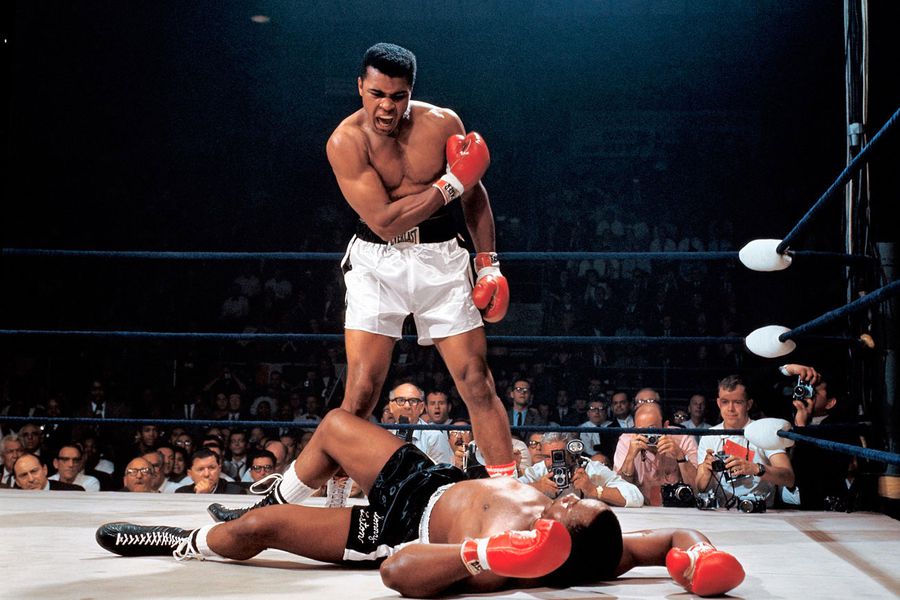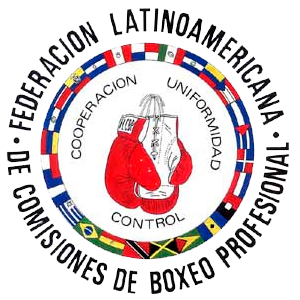Today marks the 80th anniversary of the birth of Cassius Marcellus Clay in Louisville, Kentucky, better known as Muhammad Ali since 1964, “The Greatest”, as he called himself and his millions of fans, who said that he is the best heavyweight to have entered a ring in more than a century and a half of boxing.
In this article we remember the man who is regarded as the best known, charismatic, irreverent, promoted and popular athlete of the 20th century, and we will have the task of breaking down the most relevant facts that marked his life.
He had an existence full of singular moments, both in the ring and as a citizen. In the latter, he distinguished himself for his tireless fight in defense of the civil rights of his African-American compatriots, as well as of the believers of Islam, a religion he assumed and revealed to profess the day after his triumph over Sonny Liston, when he won the heavyweight title for the first time on February 6, 1964 at the Convention Hall in Miami Beach.
NO ONE BEFORE OR AFTER ALI
Ali was gifted with amazing quick legs and hands, virtues never seen in any heavyweight in the past, and with boxing characteristics never seen in anyone else. From his early days he was considered an exceptional fighter, in addition to possessing an overwhelming personality.
Before him, no boxer dared to predict what round he would finish the enemy, nor did anyone talk as much and without pauses as he did. No other fighter had ever been paid what he was paid for his work, no heavyweight had ever forced the promoters to pay what he thought was fair, nor had he ever moved around the ring with his arms at his sides, dancing with joy and ease, looking at his opponent sideways and defiantly, almost with mockery.
Ali, the one who stung like a bee and floated like a butterfly (as his assistant trainer Drew “Bundini” Brown described him), the fighter who split the boxing era into three: before, during and after him.
A STOLEN BICYCLE LED HIM TO BOXING
In retrospect, let’s add that a young boy named Cassius Clay accidentally got into boxing at the age of 12 when a young kid stole his bicycle. He reported the theft to a policeman named Joe Martin and threatened to beat the thief. Martin advised him to learn to box before meeting the thief. Cassius Clay took the advice that would be the starting point for one of the most amazing and brilliant boxing histories of all time.
A BOXER NAMED CLAY…
The world first heard the name of Cassius Clay outside of the United States in 1960 when he won the light heavyweight gold medal at the Rome Olympics.
In 1960, after winning six national titles, the first at the age of 14, on October 29 he left the amateur field with a record of 137 wins and 7 losses. He turned professional under the protection of a group of Louisville businessmen and defeated Tunney Hunsaker and did not stop until he received his first opportunity for the crown on 2/15/64 against Sonny Liston.
At the age of 22 he talked non-stop. He was considered, by the press and the fans, “for a talkative nutter” who inexorably would be massacred by the hard puncher champion. They were all wrong. Liston remained seated in his corner in the 6th and Clay jumped around the ring, shouting to the reporters and everyone to swallow their words, that he was “the greatest” and “the most beautiful”, the owner of the world, the best of all.
The day after that first win over Liston he said he was a believer in Islam, that his name was Muhammad Ali (God’s Beloved), that Cassius Clay was a slave’s name and never to be called Clay again.
In the rematch on 5/25/66, Liston collapsed in the first round. Later, in April 1967, he refused to take the obligatory military service when he was recalled and a court stripped him of his title, sentenced him to pay a fine of about $5,000 and he barely escaped serving jail time.
A BOXER NAMED ALI…
Muhammad Ali he made seven other defenses, the last against Zora Folley. He returned to the ring three and a half years after being stripped for refusing to the war effort and after beating Jerry Quarry (KOT3) and Argentine Oscar “Ringo” Bonavena (KOT15) he lost his 30-0 undefeated record to Joe Frazier on March 8, 71.
Three years later on 10/30/74 he stunned the world with a shocking and unexpected KO at 2:58 of the 8th over the undefeated and favorite George Foreman (40-3-0, 37 KO’s) in Kinshasa, Zaire, today Democratic Republic of Congo, for the WBA and WBC belts, in an African dawn of October 30, 1974, a fight watched on TV in the United States and other cities of the world by some 300 million people.
Among six of his other great fights, there were three against Joe Frazier and three against Ken Norton. He surprisingly lost to Leon Spinks on points, on February 15, 1978, and exactly 7 months later he took ample revenge, the fourth time he held the belt of the division, a first in history.
When his body was too old for his age and Parkinson’s disease (officially diagnosed in 1984), he retired. He did it with a record of 56-5-0, 37 knockouts, he only lost two fights by KO, one against his exsparring Larry Holmes and the second against Trevor Berbick in October 80 and 11/12/81, respectively.
By then Parkinson’s was already beginning to take its toll on his body. Fifteen years after retirement he was given the honor of lighting the Olympic flame at the Atlanta Games in 1996. On July 19, his pathetically trembling image on the TV screen showed a sad Ali with the torch clutched in both hands, an image that touched the world.
After battling for nearly 32 years with Parkinson’s, Muhammad Ali, “The Greatest,” the most popular fighter of all time, passed away in a Scottsdale, Arizona, hospital on June 3, 2016, at the age of 74.

















